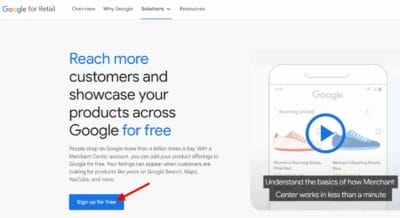Organic traffic generation, increased customer conversions, and increased lead qualification are all benefits of SEO for pressure washing companies. Pressure washing companies, like all other types of businesses, must have a robust online presence in the current digital era. Statistics show that 92% of searchers choose businesses on the first page of local search results, making it essential to ensure your company appears prominently for relevant keywords like “pressure washing [your city]” or “power washing services [your area]”. Fortunately, search engine optimization (SEO) offers a powerful solution to achieve this goal.
Understanding SEO
SEO stands for Search Engine Optimization. It’s the process of optimizing your website and online presence to improve its visibility in search engine results pages (SERPs). Search engines like Google use complex algorithms to rank websites based on various factors, including relevance, authority, and user experience. By strategically implementing SEO best practices, you can improve your website’s ranking and increase the chances of potential customers finding your pressure washing services online.
A critical aspect of SEO is targeting the right keywords. These are the search terms people use to find pressure washing services in your area. By incorporating relevant keywords naturally throughout your website content, you signal to search engines that your website is relevant to specific user searches.


Increase your local and online presence and let potential clients find you
On-Page SEO for Pressure Washing Businesses
On-page SEO focuses on optimizing the elements within your website to improve search engine ranking and user experience. Here are some key areas to consider:
Keyword Research
Identifying the right keywords is the foundation of any successful SEO strategy. Tools like Google Keyword Planner and Moz Keyword Explorer can help you discover relevant keywords with high search volume and low competition. Focus on targeting a mix of broad keywords like “pressure washing” and long-tail keywords like “residential pressure washing services near me”. Long-tail keywords are more specific and often have lower competition, making them easier to rank for.
Targeting the Right Keywords
Industry-Specific Keywords: Start by identifying keywords directly related to pressure washing services. This includes terms such as “pressure washing,” “power washing,” “exterior cleaning,” and variations thereof.
Localized Keywords: Given that pressure washing services are often location-based, incorporating localized keywords is crucial. Target phrases like “pressure washing services in [city],” “best pressure washing company near me,” or “residential pressure washing [neighborhood].”
Long-Tail Keywords: Long-tail keywords are longer, more specific phrases that typically have lower search volumes but higher conversion rates. Examples include “pressure washing for vinyl siding,” “gutter cleaning services in [city],” or “commercial building exterior cleaning.”
Tools for Keyword Research
Google suggestions, also known as Google Autocomplete or Google AutoSuggest, can be a handy tool for initial keyword research. Here’s how to leverage them effectively:
- Accessing Google Suggestions:
It’s as simple as starting a search on Google. As you type in your keyword, suggestions will automatically appear in a drop-down menu below the search bar.
- Entering Your Seed Keyword:
Start with a broad keyword related to your topic. For example, if you’re in the pressure washing industry, you might begin with “pressure washer.”

- Analyzing Auto-Suggested Keywords:
Look through the suggested terms. These can reveal:
- Related searches: These show topics people are interested in alongside your initial keyword.
- Long-tail keywords: These are more specific phrases that can be more targeted and potentially have lower competition.
- Questions: These indicate what users are curious about regarding your topic, which can help you tailor your content accordingly.
- Selecting the Right Keywords:
Don’t solely rely on Google Suggestions to finalize your keyword list. Consider:
- Relevance: Ensure the keywords are relevant to your content and target audience.
- Search intent: Understand the user’s intent behind the search (informational, transactional, etc.) to create content that aligns with their needs.
Remember, Google Suggestions are a starting point, not an end-all solution for keyword research. Use them to brainstorm ideas, then employ dedicated keyword research tools for a more comprehensive analysis.
AnswerThePublic: Answer the Public is a free online tool that helps you discover search terms and questions related to your chosen topic. It’s a valuable resource for content creators, marketers, and anyone looking to understand what people are searching for online. Here’s how to use Answer the Public:
- Access the website: Head to AnswerThePublic.com.
- Enter your seed keyword: In the search bar, type a relevant keyword or phrase related to your topic. It’s best to keep it short and to the point, ideally one or two words.
- Explore the insights: Answer the Public will generate a visual map showcasing the keyword in various contexts:
- Questions: This section displays different questions people commonly ask about your topic, phrased in various ways like “what,” “how,” “when,” “why,” “can,” etc.
- Prepositions: This shows how people use prepositions like “to,” “with,” “for,” “of,” “at,” etc., in combination with your keyword.
- Comparisons: This section reveals terms people compare your keyword to, using words like “vs,” “or,” “and,” etc.
- Alphabets: This section displays the alphabet with letters highlighted. Clicking on a letter shows searches starting with that letter.
- Analyze and utilize the data:
- Identify relevant questions, comparisons, and prepositions to generate content ideas that address your audience’s specific needs and search queries.
- Use the insights to improve your website’s SEO (Search Engine Optimization) by incorporating the discovered keywords and phrases naturally into your website content.
- Gain a deeper understanding of your target audience’s interests and pain points to tailor your messaging and offerings more effectively.
Bonus Tip:
To further expand your search, enter the phrase “for [your keyword]” in the search bar. This will reveal additional search terms related to the specific uses or applications of your chosen topic.
Remember, while Answer the Public provides valuable insights, it doesn’t show search volume or competition level. You may need to use other tools, like Google Keyword Planner, to analyze these aspects before finalizing your content strategy.
Google Keyword Planner: This free tool provides valuable insights into keyword search volumes, competition levels, and suggested bid prices for Google Ads.
SEMRush: A comprehensive SEO toolkit offering keyword research, competitive analysis, and other advanced features to optimize online visibility.
Ahrefs: Another powerful SEO toolset that provides keyword research, backlink analysis, and rank tracking functionalities.
UberSuggest: A user-friendly tool offering keyword suggestions, search volume data, and keyword difficulty scores.
Content Optimization
Creating high-quality, informative content that resonates with your target audience is essential for attracting organic traffic and improving SEO. Here are some content optimization tips:
Optimize titles and meta descriptions

Include your target keywords in your website titles and meta descriptions, which are short summaries displayed in search engine results. These elements should be clear, concise, and compelling to encourage users to click on your website.
Use headings and subheadings

Break down your content with clear headings and subheadings that incorporate relevant keywords. This improves readability and helps search engines understand the structure of your content.
Optimize body text
Use your target keywords naturally throughout your website content, but avoid keyword stuffing, which can negatively impact your ranking. Focus on providing valuable information and addressing your audience’s needs and pain points.
Use images and videos
High-quality visuals can enhance user engagement and make your content more visually appealing. Optimize your images with relevant alt tags and file names that include descriptive keywords.
Website Structure
A user-friendly and mobile-friendly website is crucial for both SEO and user experience. Ensure your website has a clear and logical navigation structure, making it easy for users to find the information they need. Additionally, mobile-friendliness is critical, as many users search for services on their smartphones. Google prioritizes mobile-friendly websites in search results, so ensure your website adapts seamlessly to different screen sizes.
Local SEO for Pressure Washing Companies
For pressure washing companies, local SEO is crucial for attracting customers in your specific service area. Here are two key strategies to consider:
Google My Business
Claiming and optimizing your Google My Business (GMB) listing is essential for local SEO success. GMB allows you to manage your business information displayed in Google Search and Maps, including your address, phone number, website, and customer reviews.
Here are some tips for optimizing your GMB listing:
- Fill out all available information accurately and completely.
- Use high-quality photos showcasing your services and team.
- Encourage customers to leave positive reviews and respond to both positive and negative reviews promptly and professionally.
Local citations
Getting listed in local directories and websites relevant to your service area can significantly improve your local search ranking. Look for online directories like Yelp, Angie’s List, and local chamber of commerce websites. Ensure your business information is consistent across all listings, including your name, address, phone number, and website.
Want to optimize your business website but don’t know how to start?
Off-Page SEO Strategies for Increased Visibility
While on-page optimization and local SEO are crucial for foundation building, off-page SEO strategies play a significant role in establishing your website’s authority and increasing its visibility in search results. Here are some key off-page SEO strategies for pressure washing companies:
Link Building
As mentioned earlier, acquiring backlinks from reputable websites relevant to your industry and local community significantly impacts your SEO ranking. Here are some ways to build backlinks:
Guest blogging: Contribute informative and valuable guest blog posts to industry-related websites, including backlinks to your website in your author bio or within the content itself.
Local business directories: Get listed in relevant online directories, industry associations, and local chamber of commerce websites with backlinks to your website.
Community involvement: Sponsor local events or participate in community initiatives, often resulting in mentions and backlinks on local news websites or community pages.
Broken link building: Identify broken links on relevant websites and reach out to website owners suggesting your website as a suitable replacement, potentially earning a backlink in the process.
Building Brand Authority through Reviews and Reputation Management
While fostering positive reviews on platforms like Google My Business falls under local SEO, proactively managing your online reputation through social media engagement and addressing negative feedback promptly also contributes to building trust and attracting potential customers, indirectly impacting your off-page SEO efforts.
Building a strong online reputation and positive brand awareness are crucial for local pressure washing companies. Here are some strategies to consider:
- Encourage customer reviews: Actively request positive reviews from satisfied customers on platforms like Google My Business, Facebook, and industry-specific directories.
- Respond promptly to reviews: Respond to all reviews, both positive and negative, in a timely and professional manner. Thank customers for positive reviews and address any concerns raised in negative reviews politely and constructively.
Final Thoughts on SEO for Pressure Washing Companies
Implementing effective SEO strategies is an ongoing process, but the long-term benefits are undeniable. By continuously optimizing your website content, maintaining a strong local presence, and actively engaging with your audience, you can significantly increase your pressure washing company’s online visibility and attract more potential customers.
Bonus: Common SEO Mistakes to Avoid
- Keyword stuffing: Trying to force too many keywords unnaturally into your content can negatively impact your ranking.
- Ignoring mobile-friendliness: In today’s mobile-first world, neglecting mobile optimization can significantly hinder your SEO efforts.
- Neglecting local SEO: If you target local customers, failing to implement local SEO strategies like optimizing your GMB listing and local citations will limit your online reach.
- Copying content: Duplicating content from other websites can be penalized by search engines. Focus on creating original, informative content that adds value to your audience.
- Ignoring user experience: Prioritize creating a user-friendly website with fast loading times and clear navigation to improve search engine ranking and user engagement.
- Ignoring technical SEO: While content and local SEO are important, neglecting technical aspects like website speed, mobile-friendliness, and broken links can negatively impact your ranking.
- Neglecting website security: Ensure your website has a valid SSL certificate to protect user data and demonstrate trustworthiness to search engines.
Start your SEO journey to increase leads and potential clients. Schedule your free strategy session now! Learn how utilizing Google Ads can also help you in your business.
Interested in learning more? Read more related articles on how SEO can rank you in Google’s top results.






